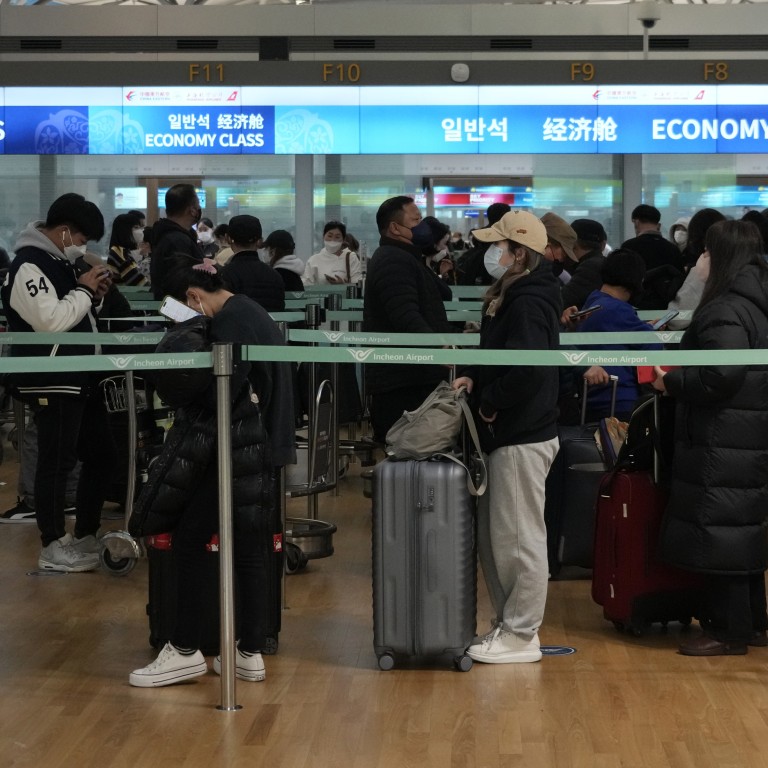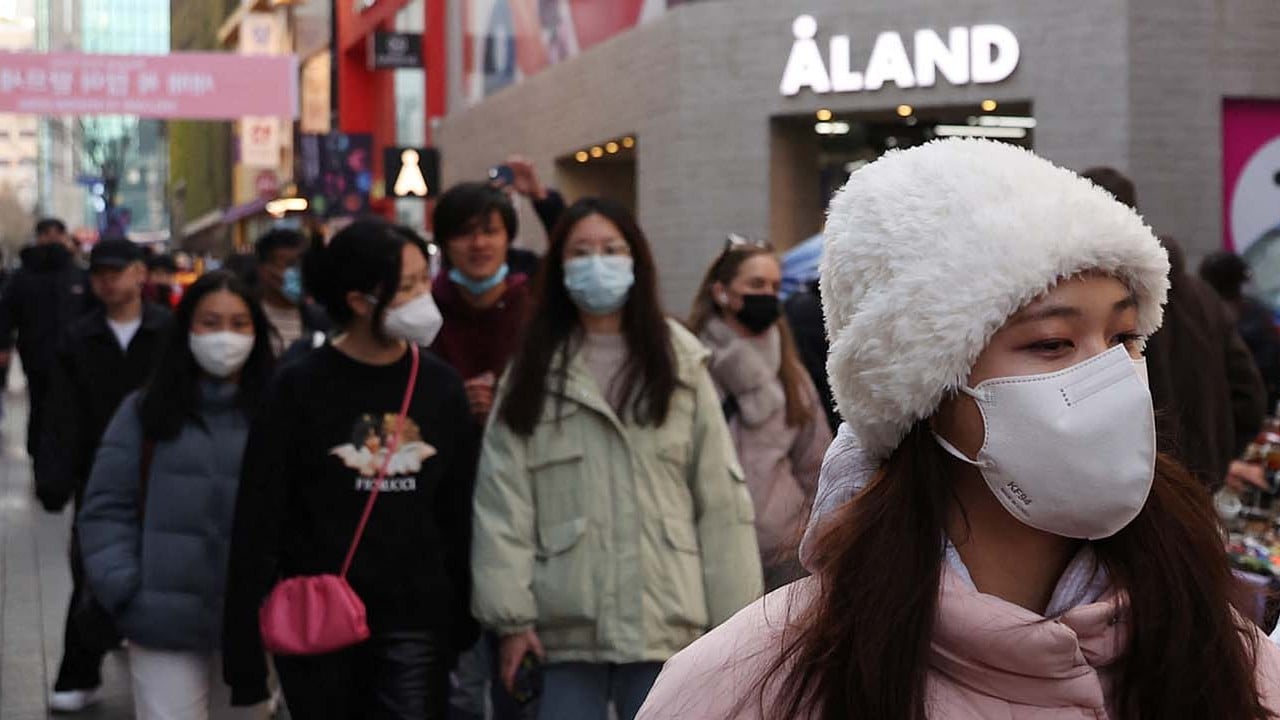
China dream dashed for South Koreans caught in Covid-19 travel row
- Travellers uncertain over Lunar New Year reunions and other plans as Seoul and Beijing impose tit-for-tat restrictions
- South Korea is the first country to be targeted by China for its measures against Chinese visitors
Lee, who lived in Shanghai for 7½ years, left his family behind – right before the pandemic hit in 2019 – so his children could continue their studies at an international school there, after he was appointed export manager, based in South Korea.
“I hope they will resume issuing visas in March as South Korea’s Covid-19 measures on China is until the end of February,” he said.
A 62-year-old professor surnamed Yun, who lived in Shanghai for 15 years until the Covid-19 outbreak, is also uncertain if he will be able to return to China as planned.
Yun, who taught design at a university and also ran a consultancy for South Korean and Japanese companies doing business in China, was caught out by the pandemic on a Lunar New Year trip to South Korea in 2020.
He was unable to return to China after his school terminated its contracts with foreign lecturers in August 2020.
“Because of the outbreak of Covid, the days ahead became all uncertain. Even if I went back to China, I [would have] had to conduct lectures virtually. So I decided to stay in South Korea and find a new job in South Korean universities,” he said.
“I planned to go back to China before the end of February for about two weeks. I’m worried if that will be possible when I can’t apply for a visa.”
Yun said he was looking forward to going back to China, to receive unpaid pension funds from his job in Shanghai and to bring back important documents left in his office.
The suspension of short-term visas for South Koreans hoping to travel to China for business, tourism, medical treatment, transit and general private affairs purposes was Beijing’s first retaliatory move against restrictions by other countries on Chinese travellers.
The Chinese embassy in Seoul said the move was triggered by “South Korea’s discriminatory entry restrictions on China”.
The consulate in Busan later clarified that short-term visa applications for foreign nationals with permanent residence, along with study and family reunion purposes, would still be processed.
China likely to retaliate against more countries over Covid travel curbs
These include visas for family reunions with foreign nationals who are in China. These require an invitation letter from the relevant Chinese provincial authority – something that was hard to get when it was required for work visas, before it was scrapped.
Seoul’s restrictions on travellers from China include a requirement for negative PCR test results before and after arrival, as well as a suspension on short-term visas for Chinese visitors. Incheon International Airport is also the only destination for flights arriving from China.
The retaliation came a day after Chinese Foreign Minister Qin Gang raised concerns over the South Korean rules in a phone call with his counterpart Park Jin.
Qin urged Seoul to uphold an “objective and scientific attitude” while Park said the measures were based on “scientific evidence”.
How Omicron outbreaks burst China’s zero-Covid dykes
“It seems like the restriction on South Korea is like a litmus test. They will see how South Korea and other countries react and impose further measures,” said Choo Jae-woo, professor of Chinese studies at Kyung Hee University in Seoul.
Kang Jun-young, professor of Chinese studies at Hankuk University of Foreign Studies in Seoul, said China’s action was an “emotional” step, which could negatively affect the development of China-South Korea relations.
“Seoul’s entry restriction measures are not more severe than other countries. The fact that South Korea became the first target of retaliatory measures means [China] has a political intention against Seoul’s continued leaning towards the United States and South Korean lawmakers’ visits to Taiwan,” he said.
Beijing decries curbs on Chinese travellers, threatens to reciprocate
South Koreans living in China have been facing increasing uncertainty, not only from the three-year zero-Covid policy but also from the escalating diplomatic tensions between Seoul and Beijing.
The number of South Koreans in China has decreased from around 300,000 in 2019 to 247,000 in 2021, according to the Korean statistics information service. The tit-for-tat travel restrictions between the two countries are likely to push them further apart.
“We are planning to move the children’s school to Malaysia. South Korea-China relations are getting worse and the cost of living in China is becoming more expensive these days,” Lee said.
“My design agency has been dormant for three years, so I don’t think it will be easy to revive it. I will only consider going back to China if I get any offers from Chinese universities to teach design again,” Yun said.


